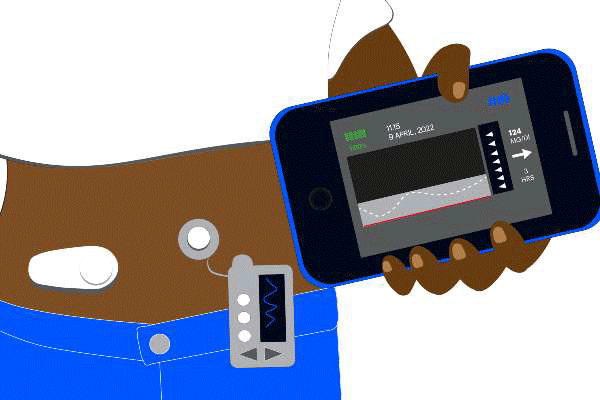England and Wales’ National Institute for Health and Care Excellence Approves HCL Systems for Type 1 Diabetes
Breakthrough Technology to Benefit Thousands Over the Next Five Years
The National Institute for Health and Care Excellence (NICE) has issued landmark guidance, paving the way for hybrid closed-loop systems to reach thousands of people living with type 1 diabetes in England and Wales. This represents a significant step forward in managing the chronic condition and promises to improve lives.
Also, read about Cardiac Autonomic Dysfunction
Who is Eligible?
The new guidance outlines clear criteria for accessing this innovative technology:
- Adults with HbA1c levels of 58 mmol/mol (7.5%) or higher, or experiencing disabling hypoglycemia, despite optimal management using:
- Continuous subcutaneous insulin infusion (CSII)
- Intermittently scanned continuous glucose monitoring (Flash)
- Real-time continuous glucose monitoring (CGM)
- Under-18s with type 1 diabetes
- Individuals with type 1 diabetes who are pregnant or planning to become pregnant
Tip: Please fill out the form if you or a friend would like more information on continuous glucose monitoring.
What are HCL Systems
Also known as “artificial pancreases,” these systems combine an insulin pump with a continuous glucose monitor (CGM). The CGM continuously tracks blood sugar levels, while a sophisticated algorithm calculates insulin needs based on this data. The pump then automatically delivers precise doses, mimicking the function of a healthy pancreas.
Must Read CGMs in noncritical care hospitals optimizes glycemic control
Benefits of HCL systems for Type 2 Diabetes:
Research suggests several advantages of HCL Systems for Type 1 Diabetes:
- Improved blood sugar control: Maintaining tighter glucose levels reduces the risk of long-term complications like neuropathy, retinopathy, and nephropathy.
- Reduced hypoglycemia: Fewer hypoglycemic episodes improve quality of life and decrease the anxiety associated with managing the condition.
- Simplified self-management: Automated insulin delivery lessens the burden of constant blood glucose monitoring and manual insulin dosing.
Gradual Rollout and the Road Ahead:
Local health systems in England will begin implementing the rollout in 2024. This phased approach ensures proper training and infrastructure are in place for effective adoption.
Stakeholder Reactions:
Diabetes UK, a leading patient advocacy organization, welcomes the NICE guidance and emphasizes the potential of HCL Systems for Type 1 Diabetes to transform lives. They remain focused on securing adequate funding and ensuring equitable access to this technology for all eligible individuals.
Read Guide about Wegovy Dosage Guide: The Best Way For Weight Loss
NHS England’s National Specialty Adviser for Diabetes, Professor Partha Kar, highlights the significance of this development, calling it a “game-changer” for patients. He underscores the positive impact on quality of life and health outcomes, positioning HCL Systems for Type 1 Diabetes as a major leap towards automated control.
This landmark decision by NICE marks a new era in managing type 1 diabetes. With HCL Systems for Type 1 Diabetes reaching thousands of patients over the next five years, hope for enhanced control and improved lives for those living with this condition takes a significant step forward.


